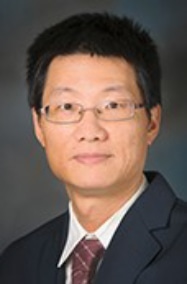About the webinar
The success of immune checkpoint blockade adds a new therapeutic category to the cancer therapy repertoire. Despite efforts made on cancer cell and immune cell interaction, how cancer cells initiate immune escape is less understood. Here we reveal PD-L1’s immunosuppression activity is stringently modulated by the spatial restraints between ubiquitination and N-linked glycosylation.
We identified GSK3beta as a novel PD-L1 interacting protein capable of inducing phosphorylation dependent proteasome degradation. The essence of PD-L1 N192, N200 and N219 glycosylation suggests it antagonizes GSK3beta binding. In this regard, only non-glycosylated PD-L1 forms a complex with GSK3beta and beta-TrCP.
More importantly, activation of GSK3beta-mediated PD-L1 degradation by TKI can reduce membrane PD-L1 expression and thereby enhance anti-tumor immunity. To test T cell-mediated cancer cell killing in vitro, we employed a time lapse microscopy, IncuCyte, to monitor RFP-tagged BT549 cells and activated PBMC interaction over a five day period.
Massive cancer cell death was observed in glycosylation deficient cancer cells, suggesting glycosylation of PD-L1 is required for its immunosuppression. Together, our results link ubiquitination and glycosylation pathways with stringent regulation of PD-L1, proposing a new therapeutic strategy to enhance cancer immune therapy efficacy.
Learning Objectives
- Molecular mechanism of PD-L1 regulation in cancer cells
- Immunosuppressive nature of triple negative breast cancer
- Using an in vitro co-culture system to analyze T cell-mediated cancer cell killing effect

Speaker: Chia-Wei Li, PhD
Instructor, Department of Molecular and Cellular Oncology, The University of Texas M. D. Anderson Cancer Center, USA
Dr. Li earned his Ph.D. degree in the Department of Pharmacology at the University of Medicine & Dentistry of New Jersey (UMDNJ) in 2007. Following graduation, he joined Dr. Mien-Chie Hung's lab at U.T. M.D. Anderson Cancer Center as a postdoctoral fellow. He was later appointed to Instructor at MD Anderson. His research lies in understanding the regulatory mechanisms of PD-L1 for the identification of novel therapeutic targets, enhancing the efficacy and safety of immunotherapy. In addition, he has tremendous interest in studying breast cancer metastasis mechanisms, aiming to develop novel therapeutic strategies. Another focus of his research is on dissecting the PARP inhibitor resistance mechanism in triple negative breast cancer.